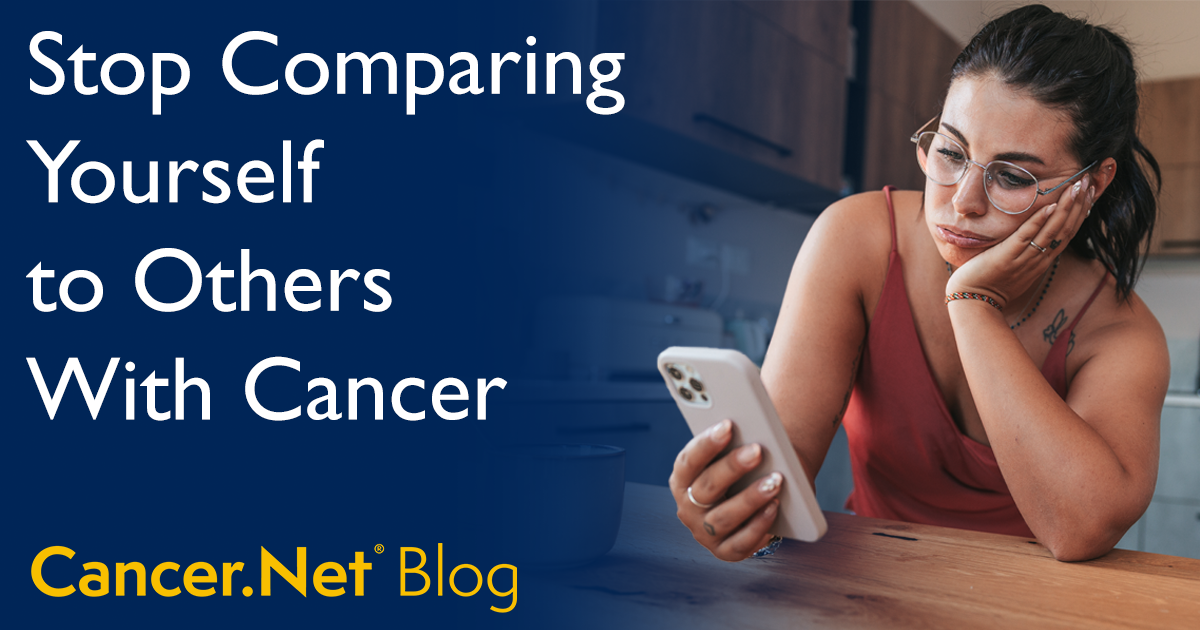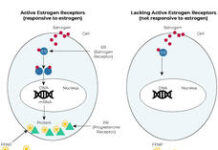
Martha Carlson is a writer, editor, and proofreader who was diagnosed with de novo metastatic breast cancer at 50 years old. The focus of her advocacy efforts is on communicating with patients, care providers, pharmaceutical companies, and the public about why the patient experience matters and how we can work together to make lives better now and in the future. Maryam Lustberg, MD, MPH, is a breast medical oncologist. She currently serves as chief of breast oncology and director of the Breast Center at Yale Cancer Center in New Haven, Connecticut. She is the co-chair of Symptom Intervention for Alliance Clinical Trials and is the president of the Multinational Association of Supportive Care in Cancer (MASCC). You can follow Ms. Carlson and Dr. Lustberg on X, formerly known as Twitter. View Dr. Lustberg’s disclosures. Ms. Carlson has no relevant relationships to disclose.
In the last decade, there’s been a flood of online communities created by and for people with cancer and survivors, particularly on social media. These online communities allow their members to share medical information, offer peer support, and form virtual connections as they navigate the often challenging maze of cancer care and survivorship.
Many groups have formed on Facebook, for example, to discuss specific drugs and how to manage their side effects, celebrate successes, and help others who are taking a certain drug. There are also more general groups for subsets of people living with or beyond cancer, such as those living with metastatic breast cancer, prostate cancer, or another type of cancer. On Twitter, there is “Cancer Twitter,” informal and ever evolving, and it is full of posts celebrating and discussing treatment and post-treatment successes.
While stories of triumph are usually uplifting and inspiring, it can be hard to stop comparing your own life to picture after picture of everyone else’s successes crossing your screen. If you’re struggling, it’s easier to believe that something must be wrong with you and your cancer experience than to remember that everyone’s path is unique.
If you are struggling with comparing yourself to the portrayals of cancer or survivorship you see online, here are some suggestions to help you cope.
1: Adjust your perspective.
There’s a reason why the expression “your new normal” is so common among people with cancer and survivors, and while none of us wanted a new normal, here we are anyway. Acknowledging that your life has changed in ways you can’t immediately or always control can help silence the comparisons with others on social media. Even if it feels like you aren’t making progress toward your goals, you can adjust your perspective because you know the complete picture—maybe a new drug is harder to manage than you expected or family obligations are preventing you from switching jobs. Take your realities into account, and extend kindness to yourself in the same way you would to someone else.
2: Choose your communities.
Consider this story from a woman named Tina* who had been diagnosed with cancer: As Tina’s cancer progressed, Tina felt ambushed by all the good news she was seeing on social media. Caring emojis and hug GIFs made her feel worse in a place where she always used to find hope. She didn’t want online friends to be in her situation, but she couldn’t find a way to be happy for them without feeling more alone. When Tina realized that others’ good news was making her feel worse, she acknowledged how she was feeling and took a break from social media. When she decided to jump back in, she took time to think about what she needed and chose to interact with the people and places she could most relate to now.
Limiting, or avoiding, groups that bring you down doesn’t mean you don’t care about the people in those groups. Rather, it means you are looking after yourself. Remember, too, that it will be easy to return to those groups when you feel ready. If that day doesn’t come, you can use other parts of social media to stay in touch. Instant messaging on Facebook or direct messaging on Twitter and Instagram are 2 such ways. Don’t feel bad about doing any of these things because the cancer community will understand, even though you are missed.
3: Realize that things on social media are not as they seem.
Selective posting of successful outcomes and happy times is often the norm across all types of social media. It’s easier to share joy with a large group of strangers than to be vulnerable about a less-than-desired outcome. So even though it may seem everyone is doing well and having amazing responses to various cancer therapies or thriving after treatment, the reality is that many people who have had news of progressive disease or are having a difficult time managing side effects may not be posting. Keeping this selection bias in mind may help you to have additional perspective as you navigate these social media stories.
4: Remember that just as each of us are unique, so, too, are cancer types.
There is not just 1 breast cancer, 1 lung cancer, 1 prostate cancer, and so on. Each cancer has its own multiple subtypes based on myriad genetic and molecular characteristics, and there is large variability in individual responses to even the most touted breakthrough cancer treatments. So even though your cancer might not have responded to the hottest new drug, this is, of course, not your fault. We’re all different, and there’s still so much we don’t know about cancer biology and how to predict and maximize responses.
Consider this story from Rachel*, a survivor who put a stop to social media fallout by putting the focus on learning: Rachel’s “new normal” meant that she couldn’t do what she’d enjoyed before cancer. She’d always used social media to connect with other people with cancer, and now she turned to it to get ideas about how to get back some of what she’d lost. It was hard not to compare another survivor running marathons with her slow recovery, but she decided to ask questions of everyone: How did you do it? What shoes do you wear? What else do you do?
Wherever you are with cancer, you can use the 4 strategies above to take the good that social media offers and leave the rest of it behind. No one would willingly choose to continue something that made them feel worse, yet that’s what many of us do when it comes to our online lives. Just like oncologists talk about individualizing treatments, we can think about individualizing how we use social media. It’s healthy to make it about what you need and want, wherever you are in your cancer experience.
*Names have been changed for anonymity.






